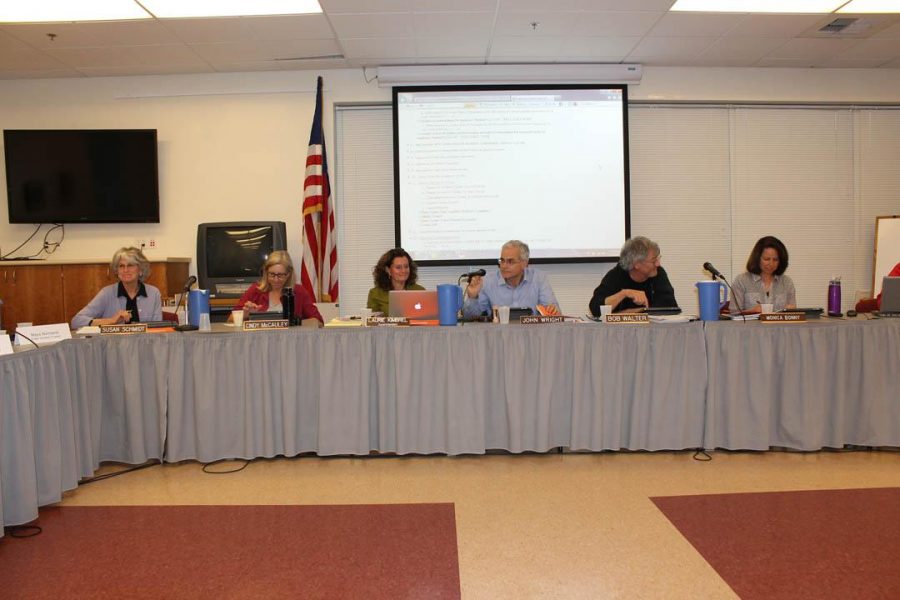In the wake of the March debate that ended in the continuation of the Team program, the Tamalpais Union High School District (TUHSD) is assembling an Alternative Programming Advisory Committee to “work collaboratively over the course of the 2013-2014 school year to develop measurable criteria by which current and future alternative programs could be evaluated,” according to the district’s website.
The committee will advise the district on the future of alternative programs, which include the Academy of Integrated Humanities and News Media (AIM) at Tam and Team at Tamiscal.
In February, TUHSD announced that it was considering the discontinuation of the alternative one-year Team program for juniors. At that time, the School Board and Superintendent Laurie Kimbrel expressed concern about the diversity of students in alternative programs; the 24 students that enroll in Team each year are predominantly white and high achieving.
Although the district chose to continue Team, Kimbrel and the board still want to address the problems with alternative programs that first prompted them to consider Team’s discontinuation. To achieve this, the district is establishing the Alternative Programming Advisory Committee.
Junior and Team student Bridget Lowry hopes the committee will consider changing the admission process for alternative programs to include factors besides just raw data.
“The data or criteria that the advisory would use to evaluate programs can show how many students in alternative programs have good or poor grades, what race they are, or their socioeconomic background but it can’t show how their home-life is or whether they are happy in a traditional program,” she said.
The committee will include a facilitator, an administrator, five teachers and five students (one from each school in the district), five parents or community members, one guidance counselor, one member appointed by the Tam Federation of Teachers (also known as the teacher’s union) and one member appointed by the classified staff.
While some are content with this system, others, like Lowry, are skeptical.
“For this board to be successful, I think it needs to have kids on it from alternative programs and traditional schools who really understand that a GPA doesn’t define how happy and fulfilled a teenager is,” she said.


